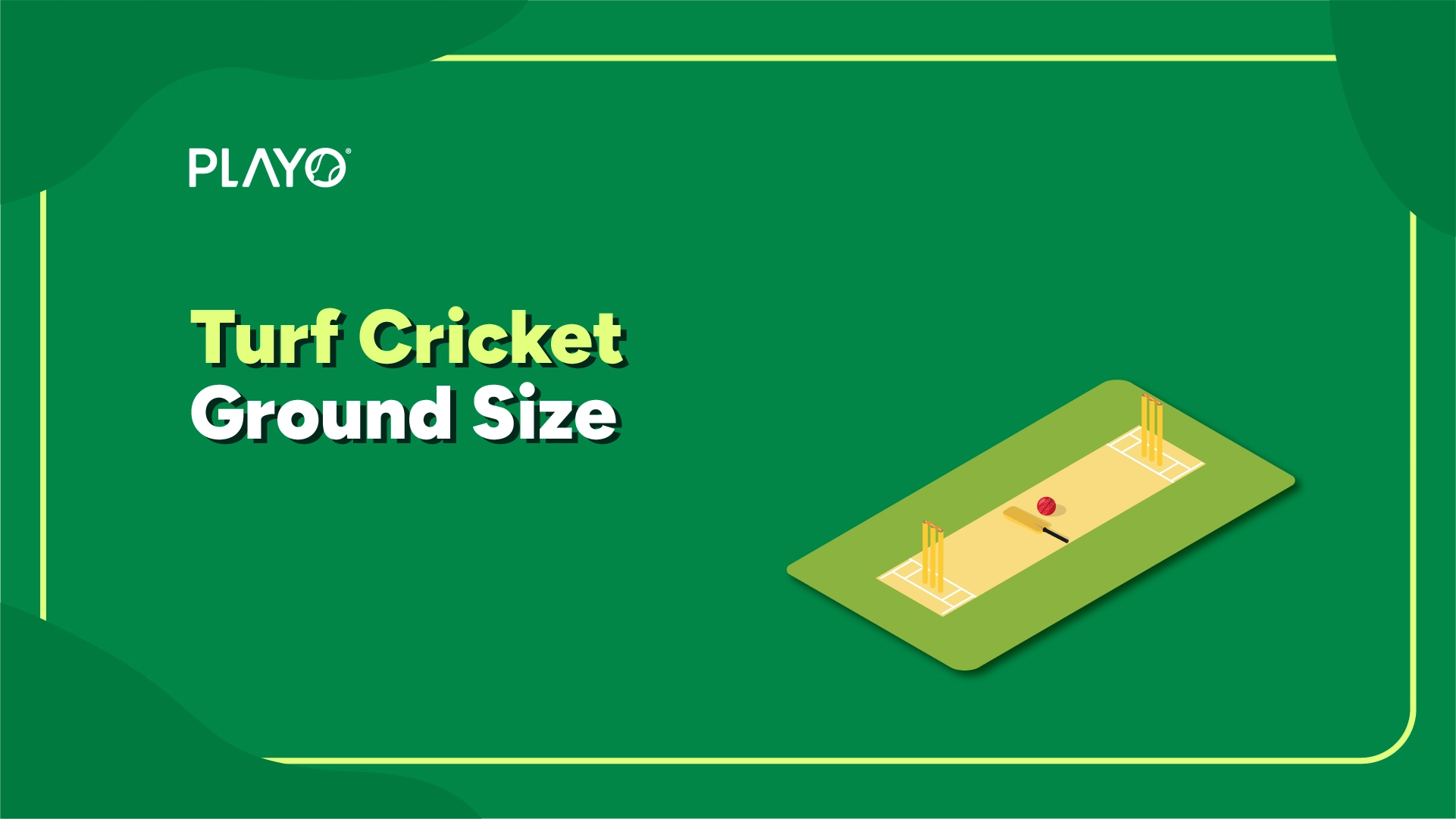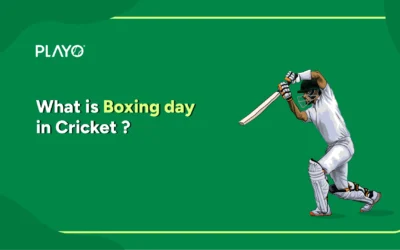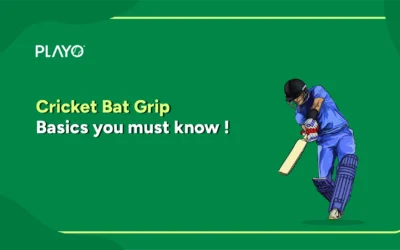The turf cricket ground size(Outdoor Mini-Ground) used in casual or weekend leagues typically spans 60–90 meters in diameter (roughly 200–300 feet). Boundaries are usually set 45–70 meters from the centre of the pitch, offering enough room for realistic stroke play and field placements.
Despite the smaller scale compared to international stadiums, the pitch length remains standard: a full 22 yards (20.12 meters), identical to professional cricket. The field shape is generally circular or oval, adapted to the available land, and the surface is either natural grass or outdoor-grade artificial turf, but always open-air with no surrounding nets.
These dimensions reflect common setups for local tournaments and recreational leagues and not ICC-regulated venues.
Box Cricket Dimensions vs. Turf Cricket Dimensions
Though both offer fast-paced play, box and turf cricket differ fundamentally: enclosed nets mean box cricket, even with “turf” flooring. Knowing the difference in turf cricket and box cricket dimensions ensures you book the right match for your team’s skill and expectations.
| Parameter | Box Cricket | Turf Cricket (Common League Standard) |
| Playing Area Type | Fully enclosed netted or walled arena (“box”) | Open outdoor mini-ground (no nets) |
| Overall Area (L × W) | Recreational: 40×25 ft, Professional: 50×30 ft | • 60–90 meters in diameter (≈200–300 ft) • Boundaries typically 45–70 m from pitch centre |
| Pitch Length | 18–22 yards (often 16–18 m in tight spaces) | Full 22 yards (20.12 m)—standard across all formats |
| Boundary Setup | Nets or walls on all sides. Indoor height is 10–12 ft, Outdoor height is 20–25 ft, Ball always in play (rebounds) | Open field with marked boundaries, the ball can go out of play, no nets or walls |
| Field Shape | Rectangular (fixed by enclosure) | Circular or oval (adaptable to available land) |
| Surface | Artificial turf or synthetic mat over concrete | Natural grass or outdoor-grade artificial turf |
Turf Cricket Ball Size and Type
Authentic turf cricket uses a leather or high-quality composite cricket ball, closely mirroring professional match balls. The standard turf cricket ball size adheres to these specs:
- Circumference: 22.4–22.9 cm
- Weight: 155.9–163 grams
- Colour: Typically red or white (same as official cricket)
While some casual setups may use softer “turf-specific” composite balls for safety, especially in youth or amateur leagues, these are still engineered to replicate the bounce, seam movement, and swing of a real cricket ball. This maintains the integrity of bowling and batting techniques.
Read More: What is Box Cricket
Turf Cricket Ball vs. Tennis Ball
While you can use a tennis ball on turf ground, it’s not standard turf cricket. Many players use a tennis ball by default for convenience, but this drastically alters gameplay. Here’s how they compare:
| Feature | Turf Cricket Ball | Regular Tennis Ball |
| Weight | 156–163 g | 56–59 g |
| Circumference | ~22.5 cm | ~20.5 cm |
| Material | Leather/composite with seam | Felt-covered rubber |
| Bounce | Predictable, pitch-dependent | High and erratic |
| Swing/Spin | Yes (with technique) | Minimal to none |
| Use Case | Skill development, real tactics | Casual, low-risk play |
Conclusion
Turf cricket means an open field, real boundaries, a standard 22-yard pitch, and a proper cricket ball. Box cricket, by contrast, features nets, rebound play, smaller dimensions, and often tennis or rubber balls.
Knowing the turf cricket ground size, ball specifications, and how it differs from box cricket helps you choose the right venue, gear, and format for your team’s goals, whether you’re training seriously or just playing for fun.
Download Playo on Android or iOS, or visit playo.co to start playing!
Frequently Asked Questions
A functional turf cricket ground typically needs 60–90 meters in diameter (200–300 feet), with boundaries set 45–70 meters from the pitch centre.
Start with level land, install proper drainage, lay natural grass or outdoor artificial turf, and mark a 22-yard pitch with boundary ropes. Professional help is recommended for lasting quality.
Yes, many box cricket arenas use artificial turf flooring. However, because they’re enclosed by nets or walls, they’re still classified as box cricket, not true turf cricket.
Compact and level the soil, roll it repeatedly, apply clay or pitch-specific mix, and maintain moisture. For casual use, a rolled concrete base with synthetic turf can suffice, but won’t replicate real pitch behaviour.
Either natural grass (ideal) or outdoor-rated artificial turf designed to mimic grass performance, never indoor mats or concrete with temporary covering.




